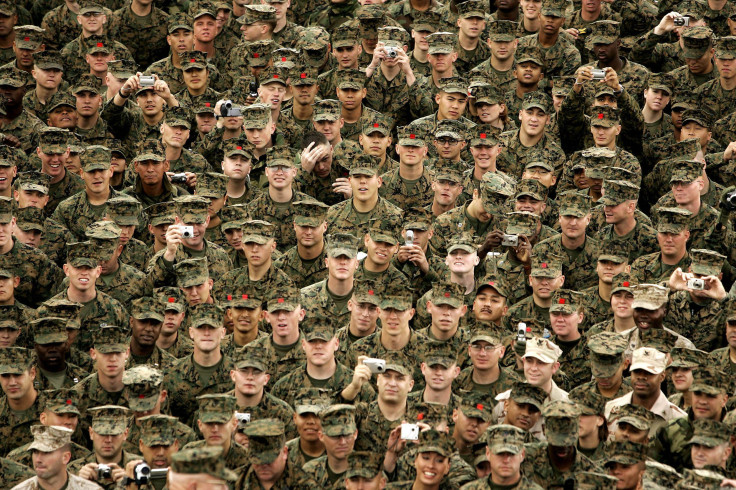How The Military Combats Measles With Strict Vaccination Policy, High Immunization Rates

The U.S. military has had little difficulty keeping measles out of its bunkers and bases thanks to a rigid and efficient set of immunization policies. The armed forces have been virtually measles-free for the past seven years, despite recent resurgences in some parts of the U.S. of the highly contagious infection and others like mumps and pertussis. Since 2008, there have been just three confirmed cases of measles among the military’s 9.5 million service members and their families, according to the Military Times.
U.S. military members have remained largely insulated from measles in part because, unlike in the civilian world, obtaining a vaccination exemption as a service member is no easy feat. Those wishing to receive a medical exemption must show proof from a health physician that their condition prevents them from being vaccinated. Personal belief exemptions are pored over by a board of commanders, chaplains and medical personnel, the Military Times reported. For parents in the outside world, obtaining personal belief exemptions for their children can be as easy as checking a box on a form.
An often passionate debate has been growing in the U.S. in light of the ongoing measles outbreak that began in California and has spread to more than a dozen other states over whether states should require children to be vaccinated before they can enter school. Some parents have said they think vaccinations should be a choice, whereas health officials have maintained that vaccines were the reason diseases like measles were essentially eradicated in the first place.
Federal health officials have set a target immunization rate of above 95 percent to avoid widespread outbreaks, but many states have fallen well below that in recent years as more parents have chosen not to vaccinate their children. In 2014, 28 states and thousands of schools dipped below the federal recommendation, according to USA Today. Over the past 15 years, the U.S. has seen nearly 2,000 cases of measles, a third of which were in 2014.
Health officials have confirmed 119 cases of measles linked to an outbreak at Disneyland that began in January. Lab tests showed that the measles virus likely came from the Philippines.
© Copyright IBTimes 2024. All rights reserved.












